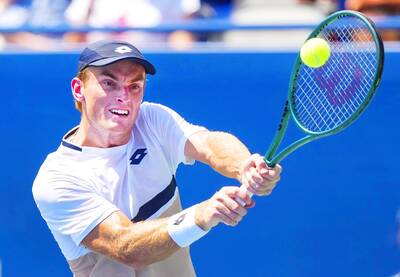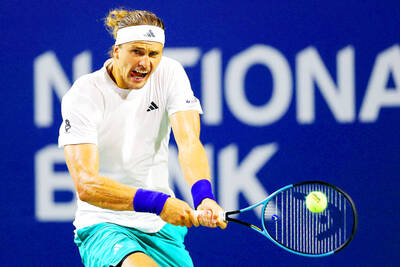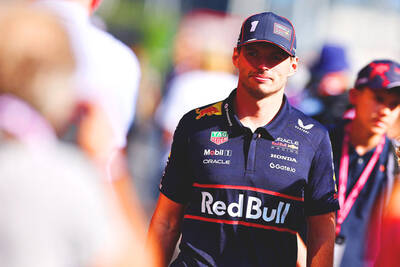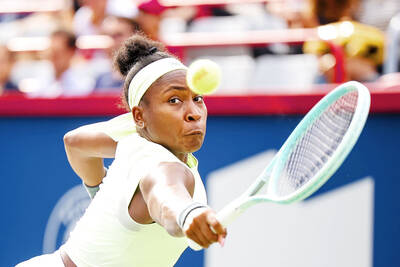World Baseball Classic winner Japan, defending Olympic champion Cuba and a talented US squad lead the chase for baseball gold at Beijing in what looks to be the sport’s Olympic farewell.
International Olympic Committee (IOC) officials have dropped baseball from the Games starting at London in 2012. International Baseball Federation president Harvey Schiller is swinging for a last-out comeback, but a strikeout is more likely.
“We are working very hard to return the game to the program in 2016 — even in London if we can,” Schiller said.
“We feel confident that we can present to the IOC and the program commission reasons for baseball’s inclusion,” he said.
North America’s Major League Baseball refuses to shut down for the Olympics, instead staging the Classic in 2006 with top global talent, denying the Games the same elite lineups that Olympic basketball and ice hockey enjoy.
Latin American nations that provide much of the top-level US talent are seldom seen on the Olympic stage. South Korea, Taiwan, Canada, China and the Netherlands will join the three favorites at Beijing.
LOOKING FOR ANSWERS
“Our sport has not chosen to shut down to make this possible. I think there are people trying to come up with an answer for that,” said Bob Watson, US Olympic baseball general manager and Major League Baseball vice president.
“If some of these smart guys can come up with a way to get these major league guys without stopping the season, we can have a chance to go forward,” Watson said.
That appears unlikely, so Watson will simply hope for the best in Beijing.
“The best thing we can do is put on a great show at the Olympics with great enthusiasm and go about it in a way that makes people want that in 2012 and 2016 and going forward,” Watson said.
‘TEAM TO BEAT’
Japan has a star-studded team of prospects and some veterans from what has become a growing talent pool for the US major leagues, having won the inaugural Classic over teams of major league rivals.
“They are probably going to be the team to beat,” US manager Davey Johnson said. “They will have future major league players.”
Three-time Olympic champion Cuba won in Athens but the team has lost a lot of talent because of key players defecting.
Still, the island’s elite made a point in 2006 by reaching the Classic final in their first true test against major league stars.
“Cuba is blessed with a lot of great young talent,” Johnson said.
“Japan has come a long way. Korea, Taiwan and now China, they have the fever. With the great athletes they have it won’t be long until they have great players,” he said.
A US team of collegians failed to qualify for Athens in 2004.
“There was a lot of pressure for us to bring back the US to where we belong — on top,” Johnson said.
WRONG APPROACH
An embarrassing US exit before the 2006 Classic semi-finals taught Johnson that a “Dream Team” approach was doomed to fail.
“We didn’t play very good as the Dream Team. You can’t run those games like an All-Star game,” he said. “You can’t afford to make a mistake in selecting the team. The level of competition is too good around the world.”
US teams will be cautious about allowing top prospects, pitchers especially, in the Olympics, but talent just below the major league level still might be the best US Olympic squad ever.
Half the 24-man lineup will be pitchers, ensuring none of the prospects are taxed too much in the quest to restore US honor.
“We will guarantee them to use them correctly, to not overpitch them,” Watson said.

TAIWANESE EXITS: Fellow Australian Christopher O’Connell joined Tristan Schoolkate as a winner following his 6-1, 6-2 defeat of Tseng Hsin-chun Australian qualifier Tristan Schoolkate on Monday dispatched rising Brazilian talent Joao Fonseca 7-6 (7/5), 6-4 at the ATP Toronto Masters, ensuring a breakthrough into the world top 100. The 24-year-old from Perth moved to 98th in the ongoing live rankings as he claimed his biggest career victory by knocking out the ATP NextGen champion from November last year. Schoolkate, son of a tennis coach, won his first match over a top-50 opponent on his sixth attempt as he ousted the world No. 49 teenager from Brazil. The qualifier played a quarter-final this month in Los Cabos and won through qualifying for his

Top seeds Alexander Zverev of Germany and American Coco Gauff on Tuesday advanced to the third round of the Canadian Open after both players were pushed hard by their opponents. World No. 3 Zverev, playing in his first match since his first-round loss at Wimbledon, was far from his best, but emerged with a 7-6 (8/6), 6-4 win over Adam Walton under the lights in Toronto. Momentum shifted firmly in Zverev’s favor when he won a 52-shot rally in the first set tiebreak and he sealed the win on a double fault by the Australian in the second set. “It was a very

Formula 1 champion Max Verstappen on Thursday said that he is staying with the Red Bull team next year, ending months of speculation over his future. “Some people just like to stir the pot, some people just like to create drama, but, for me, it’s always been quite clear, and also for next year,” the four-time champion said ahead of the Hungarian Grand Prix. “I’m discussing with the team already the plans — the things that we want to change for next year, so that means that I’m also staying with the team for next year,” he said. Verstappen has a contract with

Alex Michelsen on Thursday rallied for a 3-6, 7-6 (7/4), 6-4 upset victory over third-seeded Lorenzo Musetti in the men’s singles, converting his seventh match point to reach the fourth round of the Canadian Open. Michelsen reached the last 16 of a Masters 1000 for the first time with his second win over a top-10 player in eight attempts. The 20-year-old American survived nearly 50 unforced errors and converted just two of nine break chances, but it was enough to vanquish Italy’s Musetti, a two-time Grand Slam semi-finalist ranked 10th in the world. “It feels really good,” the 26th-ranked Michelsen said. “I’ve put